- Home
- Allison Brennan
The Hunt Page 4
The Hunt Read online
Page 4
Bill Moore would never be alone. He was well liked and admired by everyone in Gallatin County, and his lodge did well with both the summer tourist trade and winter skiers, as well as locals coming in for dinner or Sunday brunch throughout the year. The lodge had eight suites upstairs for guests; twice as many cabins dotted the eighty-some acres Bill owned. Longtime friends visited often; strangers were like family. That was Bill’s way.
Miranda longed to sink into her private hot tub and watch the day go by through the picture window. Soak until she was red and raw from water almost too hot to tolerate. Cry until there were no tears left.
Instead she grabbed extra ammunition for the .45 auto she carried and retrieved her shotgun. Her dad would provide food, but she packed her survival kit. Three days of dry food and water pouches, knife, flare gun, and matches stacked into the bottom half of a backpack. She added the ammo, as well as a lined Gore-Tex jacket, change of clothes, and thermal blanket.
She would never be caught unprepared.
Fifteen minutes later she walked into the commercial-sized kitchen and watched as her father and Ben “Gray” Grayhawk—cook, general handyman, and friend—loaded an ice chest with water bottles and individually wrapped sandwiches. There were at least forty meals. Six thermoses were packed into a box, along with Styrofoam cups and a green garbage bag for trash.
She put her backpack down by the door and wrapped her arms around her father. “Thank you, Daddy.” She smiled her appreciation at Gray.
“Your father won’t say it but I will,” Gray said. “You watch yourself, young lady. Don’t be going traipsing off into the woods without backup. Don’t be the hero. Be smart.”
“I’ll be careful.” Miranda loved Gray, even though he worried constantly about her. A few years older than her father, his long, braided silver hair, high cheekbones, and flat face bespoke his Indian heritage, but his green eyes favored his European mother. Born in Bozeman, he’d moved away as a teenager, returning after serving three tours of duty in Vietnam.
It was Gray who had taught her about guns.
The three of them took the food and beverages to Miranda’s Jeep. As she was about to get in, her father grabbed her arm. His blue eyes, a pale reflection of her own, shone with worry and concern. “Randy, be careful.”
She nodded, unable to say anything for fear the tears she’d held at bay since her moment of weakness at the university would break free. She hopped in, waved, and drove away.
Bill watched the Jeep until it disappeared around the bend, just past the sign that announced: You’re always welcome at Gallatin Lodge. He took out his bandanna, blew his nose.
Gray clamped his large hand on his friend’s shoulder. “She’ll be okay, Billy. She has a strong spirit.”
“I know. I know.” He breathed in deeply, eased the fresh mountain air from his lungs. “She deserves to be happy. I just love her so much, I hate seeing her go through this over and over again.”
“It’s what she’s meant to do. You can’t force her down your path, just like Nick couldn’t force her down his.”
Bill glanced at his friend. “Quinn Peterson called for a room.”
“You give him one?”
“Yep.”
“Miranda ain’t gonna be too happy with that.”
“Don’t I know it.” But he had amends to make. He only hoped that Miranda would forgive him when she learned the truth.
Elijah Banks thanked the God he no longer believed in that his luck was finally changing.
He tore out the back door of Gazette headquarters in Missoula and jumped into his rusting pickup truck. A quick glance at his watch told him he had just enough time to swing by his apartment and grab an overnight bag.
The Butcher had struck again. Rebecca Douglas’s body had been discovered an hour ago, and while the sheriff was being all hush-hush about it, Eli’s sixth sense told him it was the Butcher.
Co-ed missing about a week. Found dead. Butcher. Damn, he wished he’d been there from the beginning, but his editor wouldn’t give him the time. Instead, he’d spent Monday and Tuesday in Helena writing about yet another political bribery trial, and the last three days interviewing old people who’d had their identity stolen.
Boring boring boring.
But now that he had a dead body to follow up, his editor had given him the assignment. His police contact had provided few details, only that the woman’s body had been found and Sheriff Thomas ordered radio silence, called in the coroner, and was currently out at the ridge off Cherry Creek Road, south of the interstate.
If he played his cards right, he could catapult himself off of this mountain hellhole and land himself a real reporter slot in a real newspaper in a real city.
His apartment was only half a mile from the paper. He kept the truck running, and ran upstairs to throw clothes and his shaving kit into a backpack. He grabbed his tape recorder, extra pencils and pads, and his journal.
Twelve years ago Eli had started the journal to document everything about the Butcher investigation. Even when he moved up to Missoula, he’d kept informed every time another college girl was abducted, another body found.
The Bozeman Butcher. He’d named the killer in the first article after Moore’s story got out. It wasn’t his first choice. He wanted to name the killer The Woman Hunter, but his editor at the Chronicle, the stupid jerk Brian Collie, didn’t want to piss off the hunting community and told him to come up with something else. “Butcher” didn’t really fit because the guy didn’t really butcher his victims. He hunted them, then either shot them or sliced their throat. But the moniker stuck.
Collie was still around, never having amounted to much of anything because he’d never aspired to be more than the editor of the two-bit paper in Bozeman. Unlike Eli. He’d beaten the town and gotten as far as Missoula. At the time, it seemed like the perfect step. First Missoula, next Seattle. Then New York.
The plan had stalled in Missoula. But now—now there was hope he wouldn’t be stuck here for the rest of his miserable life.
Five minutes later, he was pulling onto the interstate headed south, toward the cow town of Bozeman. Normally he dreaded the drive, but today he fidgeted with excitement.
A hot story was just what he needed to land him a choice job at a major paper. Good-bye Missoula. Hello New York City.
CHAPTER
5
Quinn tapped his fingers on the dashboard of Nick’s police-issue SUV. He hated being in the passenger seat. It seemed to take twice as long to get anywhere.
“You didn’t give me a lot of details on the phone last week,” he said to Nick. “The Douglas girl was abducted on Friday night?”
“Her roommate called it in about one Saturday morning. She hadn’t come back to the dorm after her shift at the Pizza Shack, the one right off the interstate. The responding officer found her car in the lot, her keys on the passenger seat.”
“Her purse?”
“Missing.”
Few personal effects of the young women had ever been recovered, which made Quinn suspect the killer kept them as souvenirs. To remember his victims.
“We bypassed the standard missing persons wait time because I knew, in my gut, it was the Butcher.”
“Was her car disabled?”
“No.”
“That’s a change.” Quinn wondered why, when up to now every victim of the Butcher had been stranded by the side of the road. Evidence showed that each vehicle had been disabled with molasses in the gas tank. The molasses clogged the fuel filter, resulting in no gasoline reaching the engine. The car just died two or three miles after the victim’s last stop.
When Penny Thompson disappeared fifteen years ago, her car had been recovered down a steep ravine. There was blood on the steering wheel, but no definite sign of foul play; the investigators at the time felt she’d wandered off and gotten lost due to a head injury, but the case had been left open.
Three years later, when Miranda’s car was found by the side of the road
halfway between Gallatin Gateway and her father’s lodge near Big Sky, the Sheriff’s Department quickly connected the dots and called in the FBI.
Quinn’s life had irrevocably changed from that day forward.
“Some people insisted it wasn’t the Butcher, but—”
“Your instincts were right on the money.”
“Unfortunately.”
“We have two distinct advantages,” Quinn said. “First, a change in M.O. He didn’t disable the car. Maybe he didn’t have time. Maybe he acted spontaneously. Or maybe Rebecca Douglas knew him, wasn’t scared of him when he came up to her.”
“I thought of that angle, but all of the interviews so far have yielded squat.”
“I’d like to go through your notes.”
“Whatever you need.” Nick paused. “What’s the other advantage?”
“We found her body so quickly. It doesn’t help that it rained last night, but maybe the coroner can find something to tie back to a suspect, a hair, a thread from his clothes, something.” After viewing the body earlier, Quinn didn’t hold out much hope there’d be any usable evidence found on the victim, but science constantly improved and if there was anything to be found, he was confident it would be.
“If we can find the shack where he kept her captive there’s a much better chance any evidence would still be helpful,” Nick said.
“Good point.” Even when they’d found the dilapidated structures where the Butcher had restrained his victims before releasing the women in the wilderness, any evidence had been tainted or destroyed. The dampness, mold, and rot of the shacks destroyed most biological samples. They had no DNA, no fingerprints except for a partial that came up blank in the AFIS database, and no suspects.
The profile Quinn had prepared twelve years before had been updated to reflect the older assailant. Then, he’d reasoned that the Butcher was a white male between the ages of twenty-five and thirty-five, but tack on another ten years and the youngest he could be was thirty-five, more likely forty. Physically strong, methodical—in fact, he was an obsessive planner, with patience and fortitude. He didn’t lack confidence, which was why he never doubted he could catch the women he released. Not that it was too difficult to track a naked, barefoot woman through the woods.
Quinn had been pulled off the investigation after two months because there were no leads and little evidence. When no other women disappeared, the powers that be didn’t feel scarce resources could be expended in the futile search for Sharon’s killer.
The Butcher had waited three years after that before abducting two other girls, but no bodies had ever been recovered. Few serial killers had the patience to wait so long between attacks, but there were no like crimes reported in the rest of the country.
The lack of continuity, the sporadic nature of the assailant, gave police next to nothing to go on.
Quinn pounded his fist against the dashboard. “I want to get this bastard.”
Nick didn’t say anything as he turned onto a gravel road under an arch that read Parker Ranch.
Quinn vaguely remembered Richard Parker from the time he spent on the Butcher case. Mover and shaker in the state, federal political connections, locally elected to some office. Supervisor, he thought.
Richard Parker had never been a suspect. Quinn remembered he’d been arrogant and something of a blowhard, but seemed sincere in wanting to find additional resources for the Sheriff’s Department at a time when tax dollars were especially tight.
The Parker residence reminded Quinn of the Ponderosa. He almost expected Ben Cartwright to answer the door.
“Sheriff,” Richard Parker said as he opened the large door. Parker had aged well, Quinn noted. About fifty, his blond hair hadn’t yet begun to gray and the wrinkles around his dark eyes were minimal. Six feet tall and lean, he had the broad shoulders and defined muscles of a man comfortable working a ranch.
Parker turned to Quinn. “Special Agent Peterson, right?”
Quinn nodded. “Good memory, Mr. Parker.”
Parker smiled weakly. “It’s Judge Parker now, but don’t mind the formalities. Call me Richard.”
Judge. Quinn glanced at Nick, irritated that his friend hadn’t clued him in to the politically sensitive situation. Quinn hated playing politics.
“Thank you.”
They followed Parker through the wide, dark-paneled foyer into the large living room, bright from east- and south-facing windows and two long, narrow skylights.
Everything was immaculate and perfectly placed, as if the Parkers were expecting a camera crew from House Beautiful. Hunting trophies and framed prints of outdoor scenes decorated the light-colored walls; oversized, heavy pine furniture was simple and functional. A hint of femininity showed in the floral throw pillows complementing the dark fabric couches and chairs. A gun cabinet was prominently displayed along one wall, above it a huge fish with a plaque that read White Sturgeon, 71 pounds, Kootenai River, June 10, 1991.
“I sent the boys to the barn to tend to the horses,” Parker said. “Can I get you anything to drink? Coffee, soda? Probably too early for Scotch.” He motioned for them to sit.
“We can’t stay, Richard,” Nick said. “I’ve called in all my deputies, and we have a group of volunteers to work the area. It’s going to be a long day.”
“I understand. The boys were pretty shaken up. You’ll go easy on them?”
“Of course,” Nick said.
“Do you need horses? I can have Jed bring over six or seven. And I’ll give the hands the afternoon off if you need them.”
“Much obliged, Richard,” Nick said. “We’ll need to search on foot to avoid contaminating possible evidence.”
Parker nodded. “Yes, yes. Of course.” He closed his eyes and shook his head. “I thought—I guess I thought that it was over.”
I didn’t, Quinn thought. “Serial killers only stop when they are incarcerated or die.”
“But it’s been three years.”
Quinn shook his head. “There is every reason to believe Corinne Atwell was also a victim of the Butcher, and she went missing May first of last year. The wilderness is unforgiving. Animals, weather, terrain. We may never know how many girls he’s killed.”
“What’s the FBI’s interest this time?” Parker raised his eyebrow. “You weren’t here when the twins were found.”
“Actually,” Nick corrected him, “Special Agent Thorne was here after the Croft sisters were abducted, and again when Corinne Atwell turned up missing. I called Agent Peterson in last week because of his familiarity with the case. I don’t have to tell you that the resources of the federal government are far greater than our county’s.”
Quinn had no more time for small talk. Kids needed to be interviewed as soon as possible after witnessing a crime or finding evidence. If left too long to think about things, their minds tended to replace facts with fantasy, much of it from television. “Where are the boys, sir?”
“In the barn.” Parker motioned for Quinn to sit. “I’ll get them for you.”
“No need. I think they’ll be more comfortable if they’re doing something with their hands. Grooming horses sounds like a good task.”
“I’ll take you,” Parker said.
Nick held Quinn back several feet behind Parker to speak to him privately. “I want to see the horses’ hooves,” he said quietly. He couldn’t imagine that the boys would have any reason to lie, but he liked to confirm statements with solid evidence.
The stable stood several hundred feet behind the house and Quinn heard the low murmur of the boys within the stalls.
“Ryan! Sheriff Thomas is here to talk to you.”
Ryan Parker was almost eleven, the image of his father with blond hair and brown eyes. Unusually handsome for a young boy, he seemed older, almost worldly, compared to the McClain brothers.
“Ryan,” Nick began, “this is Special Agent Quincy Peterson. He’s with the FBI.”
Ryan’s eyes widened with excitement. “The FBI? Really? Can
I see your badge?”
“Ryan,” his father said sternly.
Quinn ignored Parker and squatted down so he looked up at the boy. “Sure,” he said as he pulled his wallet out of his jacket pocket. He flipped it open and showed his badge and credentials to the wide-eyed kid.
Ryan didn’t touch, but looked with interest. “Do you have to go to a special school to be a special agent?”
“After four years of college, I spent sixteen weeks at a special training camp called Quantico. I also took an extra year to get a master’s degree in criminology.”
“Is it hard?”
“Parts of it. You want to be a federal agent?”
Ryan glanced at his father, and Quinn noticed a touch of fear in the boy’s eyes. Perhaps his father simply expected him to follow in his footsteps, Quinn thought. He could relate. The fact that he wasn’t “Doctor Peterson” still weighed heavily in his parents’ house. “Maybe,” Ryan said, noncommittal.
“Can Sheriff Thomas and I ask you and your friends a few questions?”
“About the dead girl.”
“Yeah.”
Sean and Timmy McClain were brushing a horse, though they’d been listening with interest, evident from the fact that the smaller brother was brushing air.
“Guys, come over here,” Quinn called.
They dropped the grooming tools in a bucket and rushed over, introducing themselves. Sean was the older brother, acting tough and important. Timmy, the smaller boy, couldn’t stop moving, his eyes wide with interest. Quinn noted Ryan’s leadership role in the trio as he stood and the boys gathered behind him, sitting on stacks of hay. Quinn didn’t like the way Richard Parker stood formally at the side, looking every inch a judge, but considering this was an informal interview with minors, he couldn’t very well ask the father to leave. Especially when the father was an attorney.

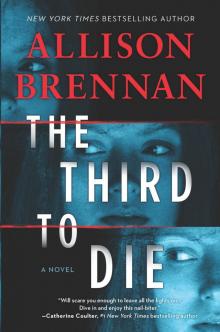 The Third to Die
The Third to Die Nothing to Hide
Nothing to Hide No Way Out
No Way Out Cold as Ice
Cold as Ice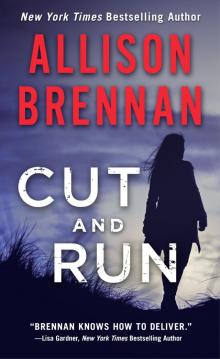 Cut and Run
Cut and Run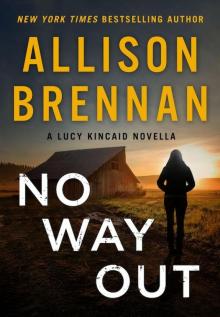 No Way Out (Lucy Kincaid Novels)
No Way Out (Lucy Kincaid Novels) Storm Warning
Storm Warning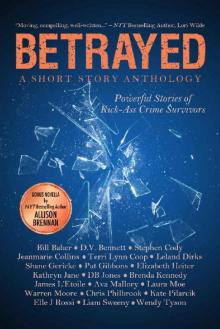 Betrayed: Powerful Stories of Kick-Ass Crime Survivors
Betrayed: Powerful Stories of Kick-Ass Crime Survivors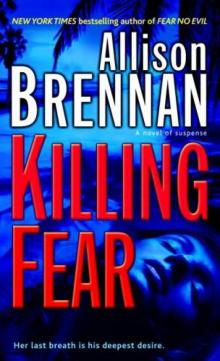 Killing Fear pb-1
Killing Fear pb-1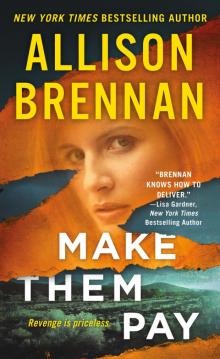 Make Them Pay
Make Them Pay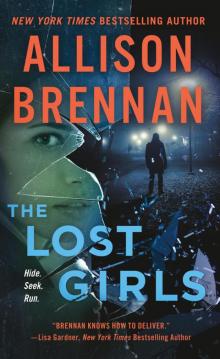 The Lost Girls
The Lost Girls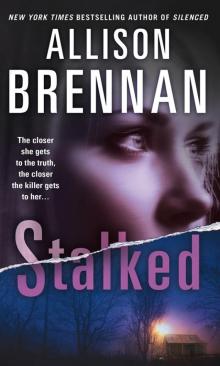 Stalked
Stalked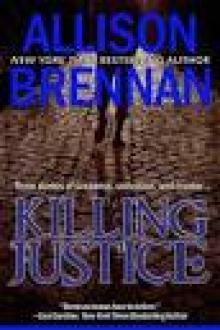 Killing Justice
Killing Justice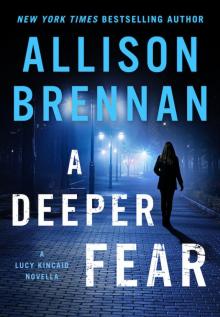 A Deeper Fear
A Deeper Fear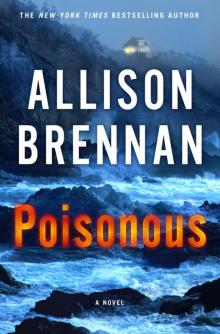 Poisonous
Poisonous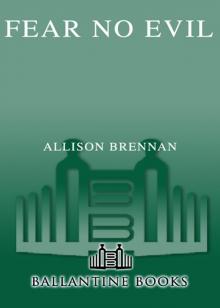 Fear No Evil
Fear No Evil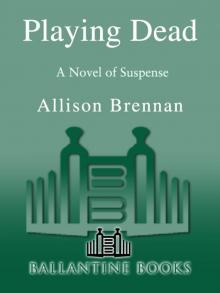 Playing Dead
Playing Dead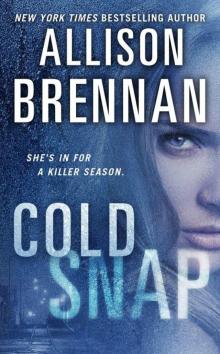 Cold Snap
Cold Snap Vacation Interrupted
Vacation Interrupted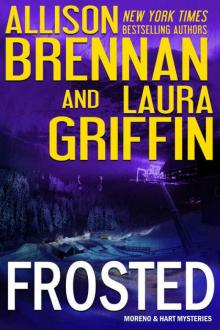 Frosted (Moreno & Hart Mysteries)
Frosted (Moreno & Hart Mysteries)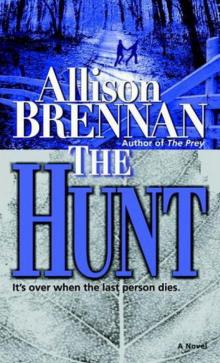 2 - The Hunt
2 - The Hunt Stolen
Stolen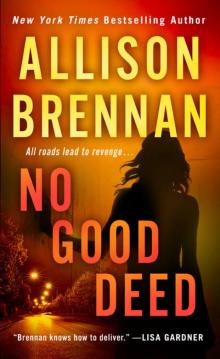 No Good Deed
No Good Deed Cutting Edge
Cutting Edge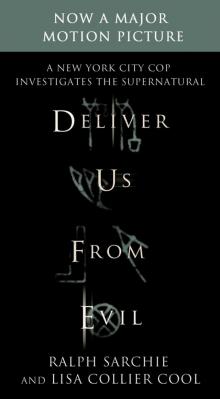 Deliver Us from Evil
Deliver Us from Evil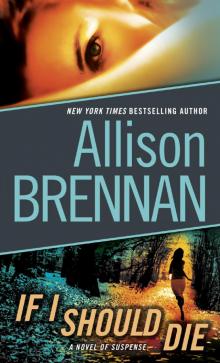 If I Should Die
If I Should Die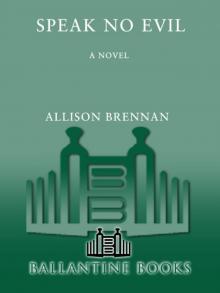 Speak No Evil
Speak No Evil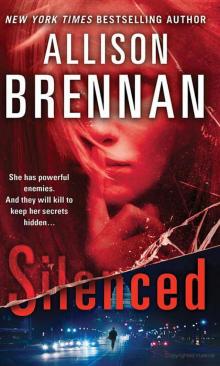 Silenced lk-4
Silenced lk-4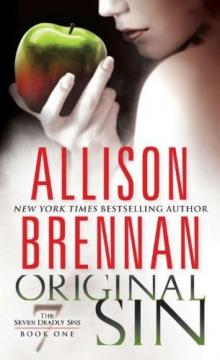 Original Sin sds-1
Original Sin sds-1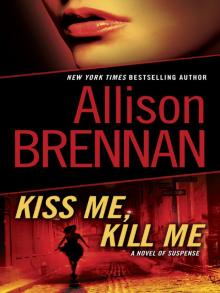 Kiss Me, Kill Me lk-2
Kiss Me, Kill Me lk-2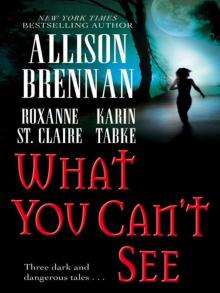 What You Can’t See
What You Can’t See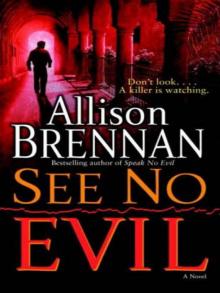 See No Evil
See No Evil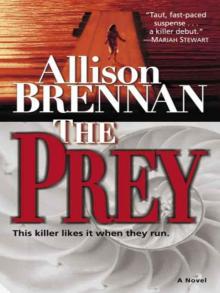 The Prey
The Prey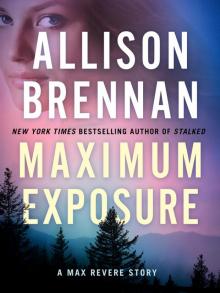 Maximum Exposure
Maximum Exposure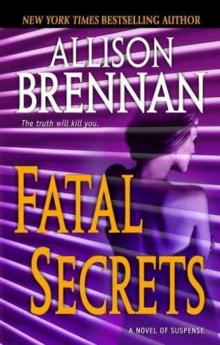 Fatal Secrets f-2
Fatal Secrets f-2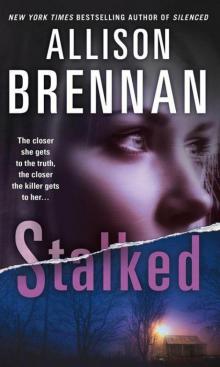 Stalked lk-5
Stalked lk-5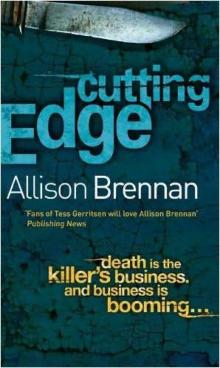 Cutting Edge f-3
Cutting Edge f-3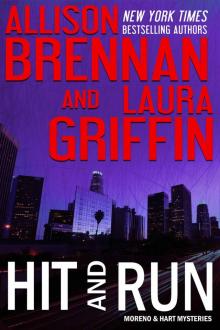 Hit and Run (Moreno & Hart Mysteries)
Hit and Run (Moreno & Hart Mysteries)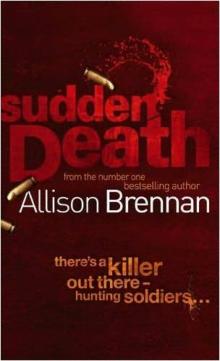 Sudden Death f-1
Sudden Death f-1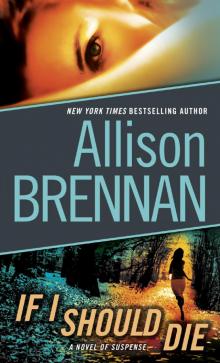 If I Should Die lk-3
If I Should Die lk-3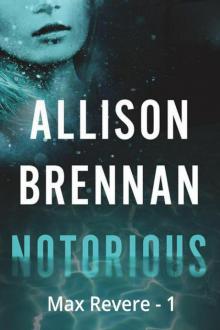 Notorious
Notorious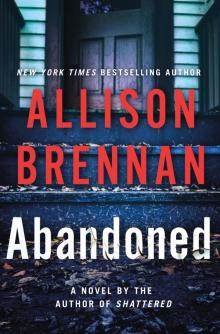 Abandoned
Abandoned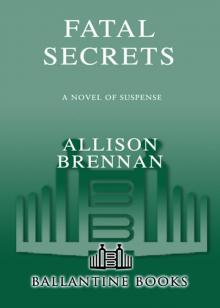 Fatal Secrets
Fatal Secrets The Hunt
The Hunt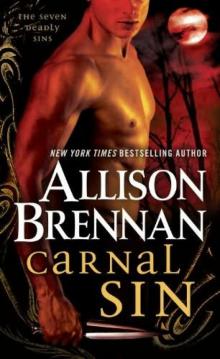 Carnal Sin sds-2
Carnal Sin sds-2 Love Is Murder
Love Is Murder Lost and Found
Lost and Found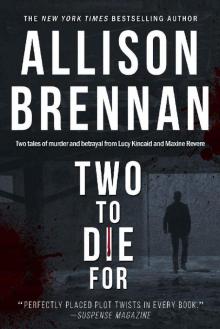 TWO TO DIE FOR
TWO TO DIE FOR Breaking Point
Breaking Point Best Laid Plans
Best Laid Plans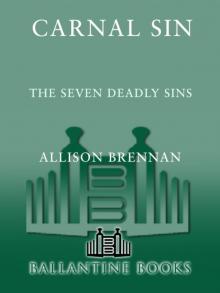 Carnal Sin
Carnal Sin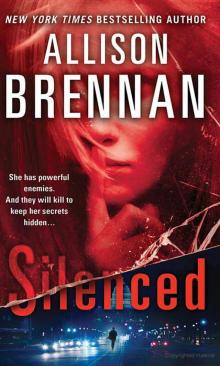 Silenced
Silenced Dead Heat
Dead Heat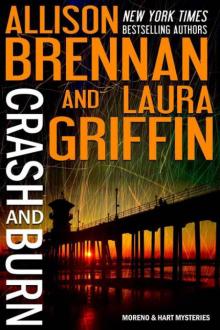 Crash and Burn
Crash and Burn Sudden Death
Sudden Death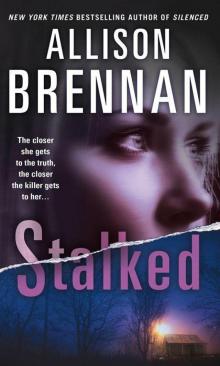 Lucy - 05 - Stalked
Lucy - 05 - Stalked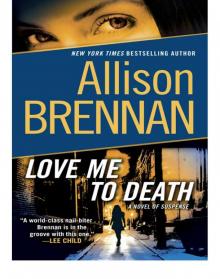 Mortal Sin
Mortal Sin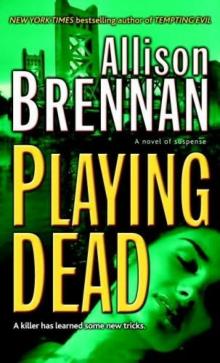 Playing Dead pb-3
Playing Dead pb-3 Kiss Me, Kill Me
Kiss Me, Kill Me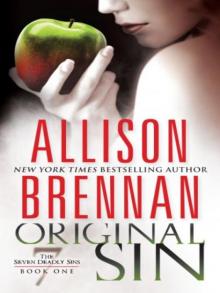 Original Sin: The Seven Deadly Sins
Original Sin: The Seven Deadly Sins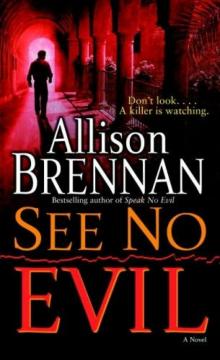 See No Evil e-2
See No Evil e-2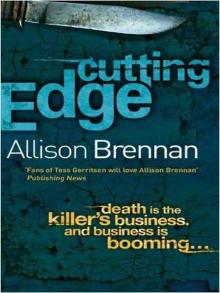 Cutting Edge: A Novel of Suspense
Cutting Edge: A Novel of Suspense Original Sin
Original Sin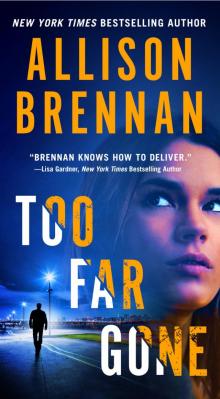 Too Far Gone
Too Far Gone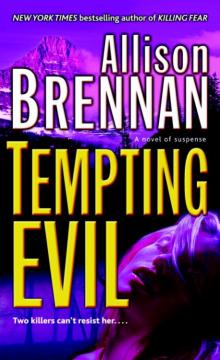 Tempting Evil
Tempting Evil Shattered
Shattered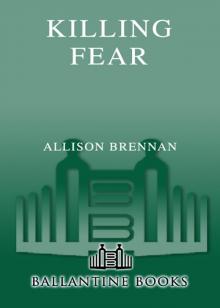 Killing Fear
Killing Fear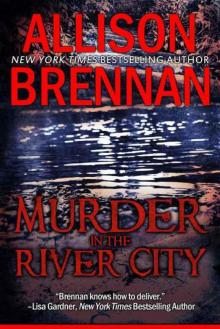 Murder in the River City
Murder in the River City Love Is Murder (lucy kincaid)
Love Is Murder (lucy kincaid)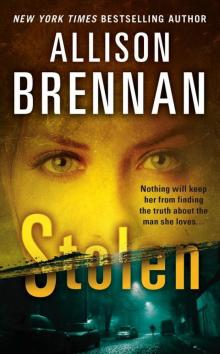 Stolen (Lucy Kincaid Novels)
Stolen (Lucy Kincaid Novels)